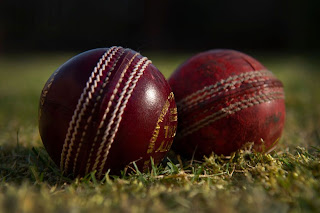In response to the British PM labelling the cricket ball a natural vector of disease
By K.R. Nayar
Meet my cricket-crazy friend who has solutions to play Coronavirus-free cricket with small modifications to the rules of the game and the behavior of the players
Cricket balls targeted. Image source ICC
Pardon me for having some fun at the expense of the coronavirus.
We read so much of serious stuff every day about this dreaded disease, so let
us distract ourselves a bit from the horrors of this virus.
I happened to read a remark from the British Prime Minister that the cricket ball is a natural vector of disease. He was responding to a question in the House of Commons on whether it was too soon to lift the current restrictions on playing cricket.
So I contacted my cricket-crazy friend who was not very appreciative of my article on whether cricketers should be put to risk and that bilateral cricket contests should wait.
“Johnson, before accusing the cricket ball, should have studied as to how cricket is played. The new ball is not like a metal door handle where the Coronavirus can stay on. This virus cannot hold on to a shiny new ball as it will surely slip off. Moreover, when the ball is hit so powerfully with the bat, the virus will be killed mercilessly. Imagine the state of the virus on the ball if Chris Gayle is the batsman,” was his matter of fact response.
Then I asked him what would happen if the batsman missed the ball? Would it not
be dangerous for the wicketkeeper? “Wicketkeepers have been wearing gloves long
before experts asked everyone to wear gloves to prevent getting infected by the
virus. So there is no danger to the wicketkeeper. However, from now on he
should not pass the ball to the first slip or any other fielder before
returning it to the bowler. He should merely roll it back to the bowler. All
the dirt that the ball would gather on its way back to the bowler can suffocate
the virus by the time it reaches the bowler,” was his simple answer.
My next query was what would happen if the bowler used his saliva on the ball
to retain the shine? Without any hesitation he said, “One camera should be always
focused on the ball to monitor if anything is being applied on it. If the bowler is spotted applying saliva, he
should be taken off before the ball is bowled, a penalty of six runs should be
granted to the batting side, and the bowler must be asked to make ten rounds
outside the boundary with his tongue hanging out.”
Will there be restrictions on celebrations after taking a wicket? Now he
thought for a while and said: “Of course hugging and high fives should be
banned. High fives can be replaced with a namaste or players can express their
happiness showing a thumbs up sign to the bowler. A pacer has to ensure that
his follow through stops two meters before the short cover fielder.”
My friend also suggested that everyone should follow West Indies pacer Sheldon
Cottrell’s unique way of celebration on taking
a wicket by standing attention and giving a military salute. “If there
are bowlers like Imran Tahir, who on taking a wicket runs out of the boundary,
he should be permitted back to the ground only after a thermal scanner check just
like what happens before we enter a mall,” he added.






Good write-up. Reminded me of ArtButchwald!
ReplyDeleteSurprised that there's no mention of a mask. Three are, in a sense, masked or rather, helmeted. Why not all the others including the umpires? Appeals can still be heard !
ReplyDelete